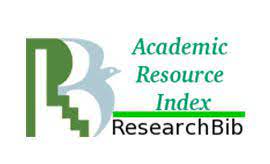DEVELOPMENT OF RESEARCH COMPETENCE IN FUTURE TEACHERS “FUNDAMENTALS OF HEALTH” USING STEAM-TECHNOLOGY
DOI:
https://doi.org/10.51707/2618-0529-2023-26-03Keywords:
research competence, health-preserving competence, Spearman’s coefficient, STEАM.Abstract
An important task of today’s school and pedagogical higher education institution is the formation of research competence. This concept does not have a well-established, generally accepted interpretation. Some scientists invest in this concept the knowledge, skills, abilities and experience necessary to perform research. Others invest in this concept actually activity, psychological readiness for such activity. Since STEAM-technology involves learning through research, it is hypothetical that this technology contributes to the formation of research competence. The degree of formation of research competence in experimental groups of students and teachers before and after STEAM classes was determined by Spearman’s test. It was demonstrated that the STEAM-lesson for students promotes the development of practical skills in the use of laboratory equipment, and thus — research competence (both experts set a maximum score of 5). Spearman’s coefficient in this case was 0.5 points. In the experiment with teachers, the Spearman coefficient was equal to 0.8, which indicates the feasibility of conducting classes using the STEAM approach in health lessons in 9th grade to develop the research competence of students and teachers. The article is also devoted to the formation of health competence with the help of STEAM-technology and the method of training in 8‑th grade students on the harmful effects of tattoos. It turned out that the desire to have a tattoo decreased by 33% in the experimental group, where training was conducted and by 27% in the experimental group, where STEAM classes were conducted. But the understanding of the dangers of tattooing in the group where STEAM classes were held improved by 79.6%, and in the group where trainings — by 62%. Thus, the use of STEAM-technology contributes to the formation of health and research competence in students and teachers.
References
Sysojeva, S. O., & Kozak, L. V. (2016). Rozvytok doslidnytskoi kompetentnosti vykladachiv vyshchoi shkoly [Development of research competence of higher school teachers]. Kyiv : TOV “Vydavnyche pidpryiemstvo “Edelveis” [in Ukrainian].
Lebedev, O. E. (2004). Kompetentnostnyy podkhod v obrazovanii [Competency-Based Approach in Education]. Shkolnyye tekhnologii — School technologies, 5, 3–12 [in Russian].
Liubchak, N. (2020). Osoblyvosti formuvannia doslidnytskoi kompetentnosti zdobuvachiv vyshchoi osvity — maibutnikh uchyteliv ukrainskoi movy ta literatury u protsesi proiektnoi diialnosti: dani empirychnoho doslidzhennia [Peculiarities of the formation of research competence of students of higher education — future teachers of the Ukrainian language and literature in the process of project activity: empirical research data]. Aktualni pytannia humanitarnykh nauk : mizhvuz. zb. nauk. prats molodykh vchenykh Drohobytskoho derzhavnoho pedahohichnoho universytetu imeni Ivana Franka — Actual issues of humanitarian sciences: interuniversity collection of scientific works of young scientists of Drohobych Ivan Franko State Pedagogical University (Issue 32), (Vol. 2), (pp. 171–176). DOI: https://doi.org/10.24919/2308-4863.2/32.214693 [in Ukrainian].
Zimnyaya, I. A. (2006). Obshchaya kultura i sotsialno-professionalnaya kompetentnost cheloveka [General culture and social and professional competence of a person]. Eydos: internet-zhurnal — Eidos: online journal. Retrieved from http://eidos.ru/journal/2006/0504.htm [in Russian].
Khutorskoy, A. (2003). Klyuchevyye kompetentsii kak komponent lichnostno oriyentirovannogo obrazovaniya [Key competencies as a component of student-centered education]. Narodnoye obrazovaniye — Public education, 2, 58–64 [in Russian].
Zymovets, O. A. (2009). Sklad profesiinykh umin maibutnikh uchyteliv humanitarnykh dystsyplin na pochatku XXI stolittia (na prykladi pidhotovky vchyteliv inozemnykh mov) [Composition of professional skills of future teachers of humanitarian disciplines at the beginning of the 21st century (on the example of training foreign language teachers)]. Visn. Zhytomyr. derzh. un‐tu — Bulletin of the Zhytomyr State Institute, 43, 150–156 [in Ukrainian].
Stepaniuk, K. (2018). Protses formuvannia doslidnytskykh umin maibutnikh uchyteliv pochatkovoi shkoly v umovakh suchasnykh vyklykiv [The process of forming the research skills of future primary school teachers in the conditions of modern challenges]. Pidhotovka maibutnikh pedahohiv u konteksti standartyzatsii pochatkovoi osvity : materialy II Vseukr. nauk.-prakt. internet-konf. z mizhnarodnoiu uchastiu — Training of future teachers in the context of standardization of primary education: materials of the II All-Ukrainian scientific and practical Internet conference with international participation. (pp. 42–45). Berdiansk [in Ukrainian].
Kravchenko, S. O. (2018). Uzahalnennia sutnosti definitsii “doslidnytska kompetentnist” — Generalization of the essence of the definition “research competence”. Molodyi vchenyi — A young scientist, 2 (1), 265–268 [in Ukrainian].
Leshchenko, M. P. et al. (2021). Development of informational and research competence of postgraduate and doctoral students in conditions of digital transformation of science and education. Journal of Physics : Conf. Ser. 1840, 012057.
Korshunova, O. V., Hushchyna, N. I., Vasylashko, I. P., & Patrykeieva, O. O. (2018). STEM-osvita. Profesiinyi rozvytok pedahoha : zbirnyk spetskursiv [Professional development of a teacher: a collection of special courses]. Kyiv : Vydavnychyi dim “Osvita” [in Ukrainian].
Lin, C. L., & Tsai, C. Y. (2021). The Effect of a Pedagogical STEAM Model on Students’ Project Competence and Learning Motivation. Journal Science Education and Technology, 30, 112–124. DOI: https://doi.org/10.1007/s10956-020-09885-x.
Hadinugrahaningsiha, T., Rahmawati, Y., & Ridwan, A. (2017). Developing 21st Century Skills in Chemistry Classrooms: Opportunities and Challenges of STEAM Integration. AIP Conference Proceedings, 1868.
Swank, M. J., & Lambie, G. W. (2016). Measurement and Evaluation in Counseling and Development. Development of the Research Competencies Scale, 49:2, 91–108.
Honcharenko, S. U. (2008). Pedahohichni doslidzhennia. Metodolohichni porady molodym naukovtsiam [Pedagogical studies. Methodological advice to young scientists]. Kyiv–Vinnytsia : DOV “Vinnytsia” [in Ukrainian].
Downloads
Published
How to Cite
Issue
Section
License
Copyright (c) 2023 Scientific notes of Junior Academy of Sciences of Ukraine

This work is licensed under a Creative Commons Attribution 4.0 International License.













